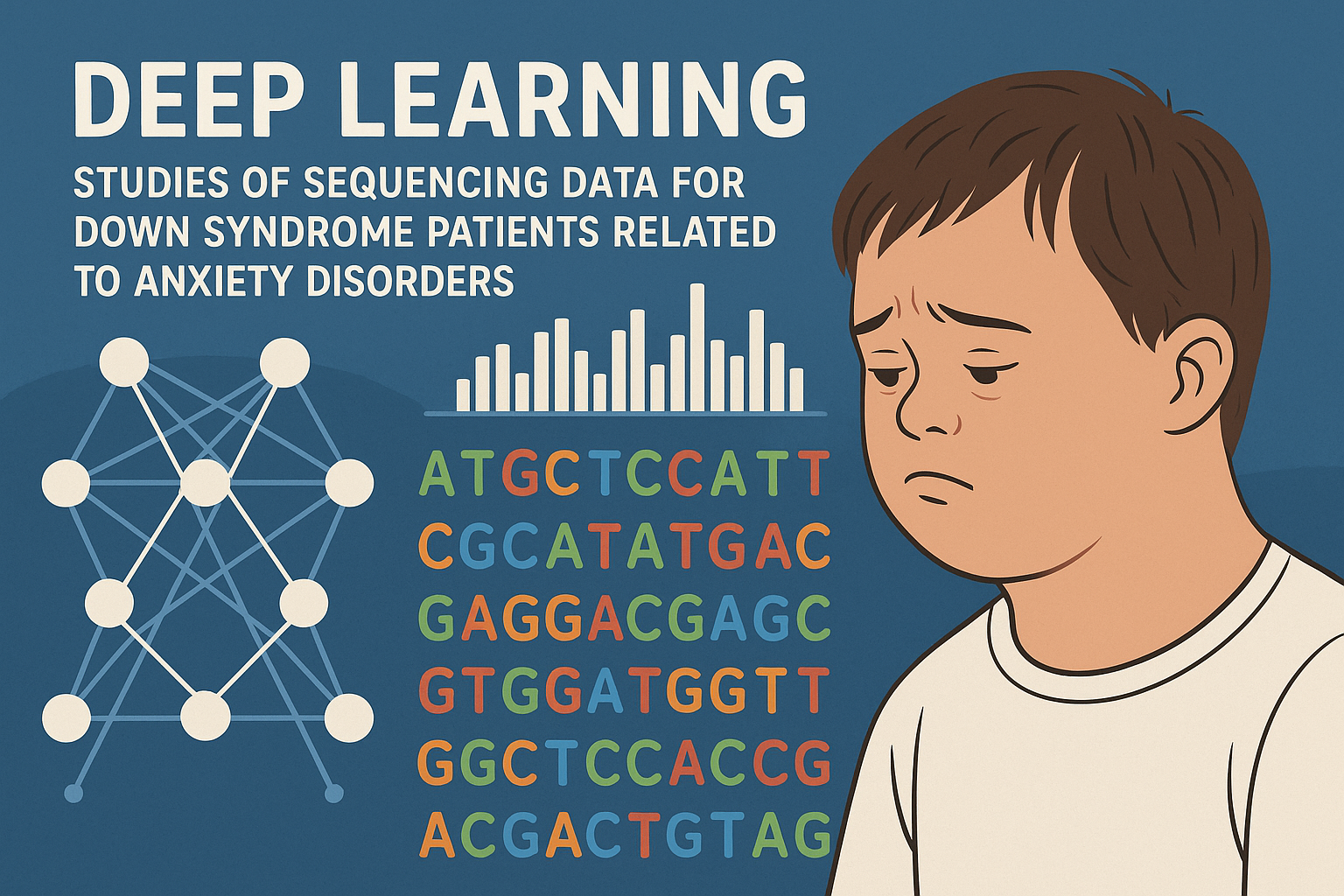Decoding Anxiety in Down Syndrome: A Genomic and AI-Powered Exploration
Published in Healthcare & Nursing, Protocols & Methods, and Genetics & Genomics
Behind the Paper: Unraveling the Genetic Landscape of Anxiety in Down Syndrome
By Dr. Yichuan Edward Liu & Dr. Hakon Hakonarson
Anxiety disorders are prevalent among children and adolescents, with approximately 9.4% of individuals aged 3–17 years in the U.S. diagnosed between 2016 and 2019. Interestingly, while individuals with intellectual disabilities (ID) are generally at increased risk for anxiety, children with Down syndrome (DS)—a genetic condition characterized by an extra copy of chromosome 21—exhibit significantly lower odds of anxiety. This paradox prompted us to investigate the unique genetic and molecular mechanisms underlying anxiety in the DS population.

The Approach
To explore this, we conducted a comprehensive analysis using one of the largest whole-genome sequencing (WGS) cohorts to date, comprising 1,479 individuals with DS and their family members. Among these, 255 DS probands were diagnosed with at least one mental disorder, and 74 had confirmed anxiety disorders. We employed advanced deep learning algorithms, specifically neural network models, to identify genomic variants associated with anxiety disorders in DS.
Key Findings
- Distinct Genetic Markers: Only 19% of anxiety-specific gene variants previously reported in the general population overlapped with those found in DS patients, suggesting that anxiety in DS individuals may arise from distinct molecular mechanisms.
- Non-Coding Variants' Role: Non-coding variants, particularly those near splicing sites, play significant roles in anxiety disorders within the DS population.
- Specific Genomic Loci: Several loci, including 17q25, 16q23, 21q22, and 22q13, showed greater weight in DS patients, indicating their potential involvement in anxiety disorders.
- Biomarker Identification: We identified 29 biomarkers containing recurrent anxiety-specific variants, which could assist in the diagnosis of anxiety in the DS population.
Challenges Faced
Diagnosing anxiety in children, especially those with DS, poses unique challenges. Children often have difficulty articulating their symptoms, and anxiety can manifest through behaviors that might be mistaken for other issues, such as attention difficulties or physical ailments. Additionally, the genetic complexity of DS, with its genome-wide alterations in gene expression, necessitated sophisticated analytical approaches to disentangle the specific factors contributing to anxiety.
Implications and Future Directions
Our findings underscore the importance of considering DS-specific genetic factors when diagnosing and treating anxiety disorders in this population. The distinct molecular patterns identified could inform the development of tailored interventions and therapies. Moreover, understanding the protective factors related to anxiety in DS could offer insights into new treatments for anxiety in the broader population.
We hope that our study serves as a foundation for further research into the genetic underpinnings of anxiety and other mental disorders in DS and beyond. By integrating genomics with advanced machine learning techniques, we aim to enhance clinical diagnosis and guide more effective intervention strategies for vulnerable populations.
For a detailed exploration of our study, please refer to the full article: Deep learning algorithms reveal genomic markers for anxiety disorder in a large cohort of children with down syndrome
Follow the Topic
-
Molecular Psychiatry

This journal publishes work aimed at elucidating biological mechanisms underlying psychiatric disorders and their treatment, with emphasis on studies at the interface of pre-clinical and clinical research.



Please sign in or register for FREE
If you are a registered user on Research Communities by Springer Nature, please sign in